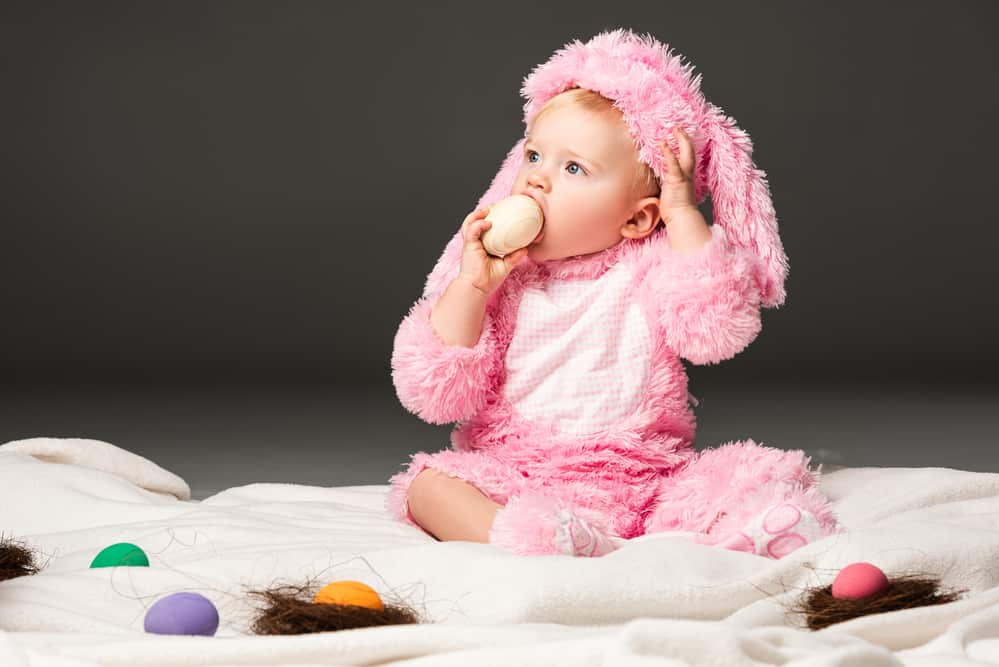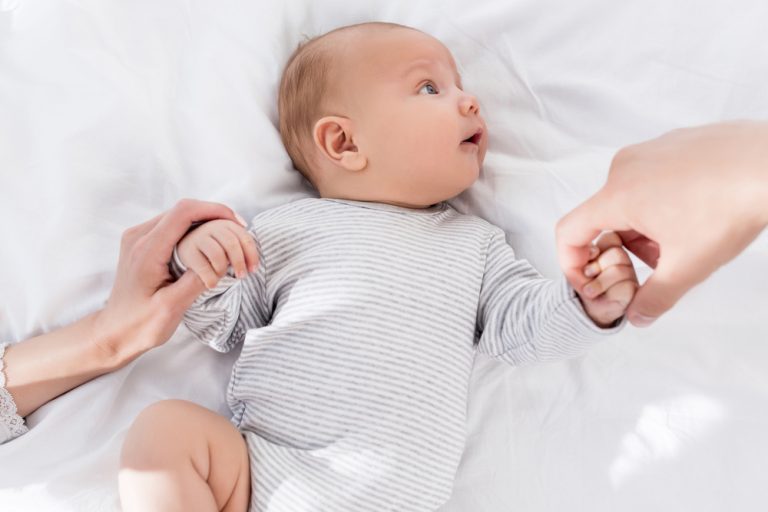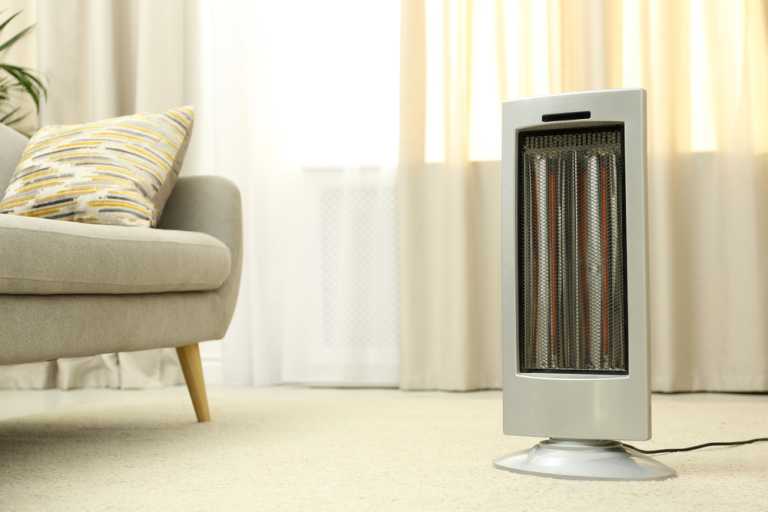Is your little one emerging from every feed looking like they’ve been playing with an angry kitten? Without a daily manicure, every baby will scratch themselves at some point. Flailing arms, grabbing, touching, and squeezing are healthy parts of their development, and baby nails are razor-sharp. Accidents will happen.
However, sometimes those scratches are a warning sign of discomfort or skin irritation. Dryness, eczema, and allergies can all cause itching and may need a visit to your pediatrician.
So, here’s what it means when your baby scratches their head while nursing: when it’s normal, when it’s not, and what you can do about it.
Why Does My Baby Scratch Their Head While Breastfeeding?
The good news is that head and face scratching is very common. It’s simply a way for your baby to explore and even self-soothe. Here are the 4 most likely explanations for your little one’s new habit.
- Tiredness
All babies have different tiredness cues. Some tug at their ears, some suck their fingers, and others scratch their heads. So, if your little one is itching during a feed, it might just mean that they’re getting sleepy.
- Self-soothing
For some little ones, scratching is more than just a tiredness cue; it’s their way to self-soothe.
- Exploration
Babies explore their world through touch. Sometimes they may grab, stroke, or hit you while feeding. Other times they might scratch their face or head. It’s all a normal part of their development.
- Uncontrolled Movements
Very young babies have almost no control over their hands. So, your little one might be scratching their face without meaning to.
Occasionally, though, excessive scratching or itching can indicate a problem. Happily, most are quick and easy to fix:
- Discomfort
Some babies scratch their faces when stressed or upset. If your little one is crying, arching their back, or getting distressed while nursing, they may be suffering from wind or reflux.
Try burping in the middle of a feed or switching nursing positions to solve the problem.
- Harsh Soaps
Not all infant soaps and shampoos are as gentle as you might think. Fragrances and ingredients like sodium laureth sulfate can be drying or irritating. You should avoid them if your baby has sensitive skin.
Instead, look for organic, non-toxic products. Or choose a soap designed for infant eczema.
- Too Many Baths
Taking too many baths, even with very mild soap, can strip the natural oils from your baby’s skin. This can cause dryness and itching.
- Dryness
Sometimes skipping baths isn’t enough. The outer layer of your baby’s skin is 30% thinner than an adult’s. This makes it more susceptible to moisture loss and, therefore, dryness.
Fortunately, this is easily solved with a fragrance-free infant moisturizer or bath emollient.
- Cradle Cap
Cradle cap is a common skin condition that affects most babies at some point. This yellow crust can develop anywhere there is hair, even in their eyebrows! It’s not usually itchy, but it can be if it becomes irritated or infected.
- Eczema
Eczema or atopic dermatitis can start in children as young as 2 months old. It looks like a dry, red rash, and it can be very itchy. See your doctor if you suspect eczema; they can advise on the best treatment for your child.
- Allergies
Allergies to detergents, lotions, and even food can trigger itchy rashes. Cow’s milk protein allergy (CMPA) is a potential culprit and can affect your little one even if you’re breastfeeding.
How to Stop a Baby Scratching Their Face While Feeding
If your baby is scratching to self-soothe and isn’t damaging their skin, let them carry on. However, if their little nails are sharp, they can cause bleeding and leave bright red scratches. In extreme cases, this could lead to infection.
Fortunately, we’ve got some simple solutions for you to try:
Scratch Mitts
The easiest option is to pop some scratch mitts on your child while they nurse. If they’ve grown out of their mitts, infant socks work just as well! However, your baby must be able to explore the world through touch, so try to limit the time they spend in them.
Trim Their Nails
The shorter you keep your little one’s fingernails, the less damage they can do. Use baby clippers or blunt baby nail scissors to shorten the length. Then, smooth the sharp corners with a nail file.
Hold Their Hand
Gently holding your little one’s hand as they feed will stop them from scratching. Plus, it’s so cute to have their tiny fingers wrapped around yours. Unfortunately, it means you won’t be able to use your hand, which might be a problem during a long nursing session.
Use a Hat
A hat is an excellent option if your child is focusing their itching on their head rather than their face. Just ensure they don’t overheat, as feeding can be sweaty work for a baby!
Give Them a Toy to Hold
Give your baby something else to do with their hands by letting them hold a toy. Sensory toys like cloths with tags or crinkle fabric should attract their attention.
Remove the Cause of the Itch
Check your detergents, fabric softeners, and other potential allergens. Try removing them one at a time to see if they are the cause of the itching. Also, remember to consider any lotions or perfumes that you might be wearing.
Moisturize
If dryness or eczema is causing the itching, treat it with infant moisturizers, emollients, or prescribed creams. Even if dry skin isn’t the problem, moisturizers promote skin healing and can prevent damage from stray fingernails.
Brush Their Hair
Remove the cradle cap and itchy, dry skin from their hair with a soft bristled brush.
How to Treat Scratches on a Baby’s Face
Small scratches will heal well on their own, but you can help things along with these simple steps.
- Clean the area with mild soap in the bath or with a wipe. Don’t use cotton wool; the fibers might get caught up in the scratch.
- Pat the scratch dry. Don’t rub, as this may irritate your child’s sensitive skin.
- Apply antiseptic cream or infant moisturizer. Keeping their skin moist promotes healing and prevents further damage.
- Do not use any kind of bandage. Your little one may pull it off, and it’ll become a choking hazard.
When to See a Doctor
In general, face scratching is totally normal, but you should see a doctor if you suspect eczema, an allergy, or an infection. Signs of a skin infection include:
- Yellow or orange crusts forming on top of a rash
- Pus filled blisters
- Open sores
- Discharge that is making the scratches look wet
- Redness spreading away from the scratches
- Fever
- Pain





Very educative have gotten sime good insights releaving my worries about my babies health thank you so much for making this article available for mothers.